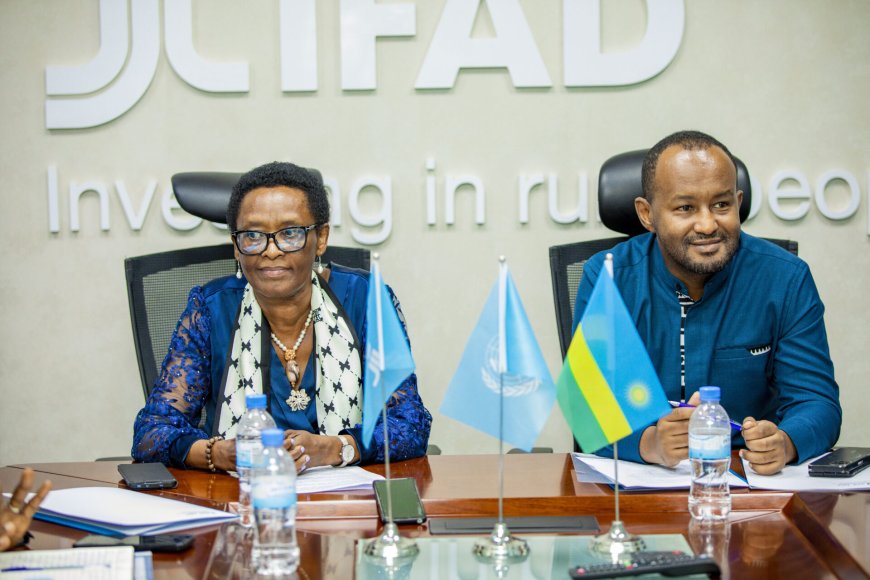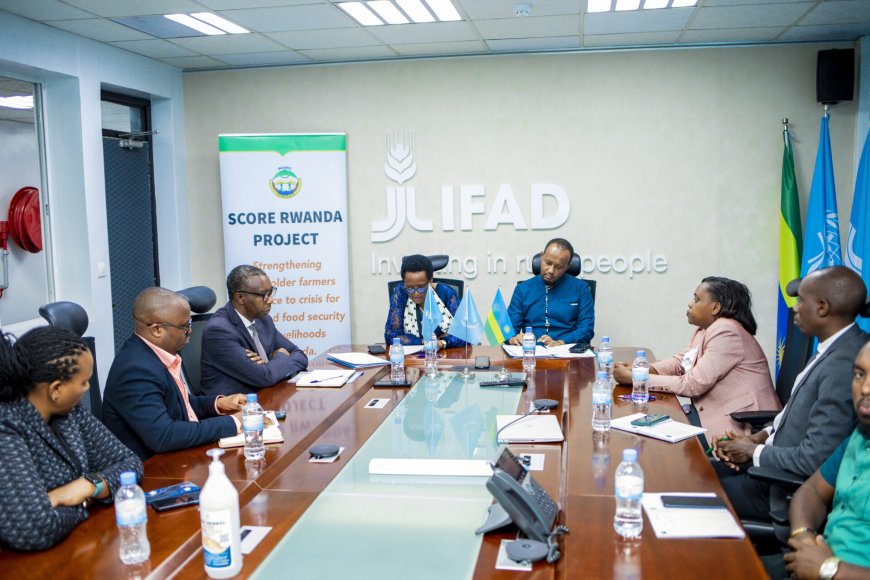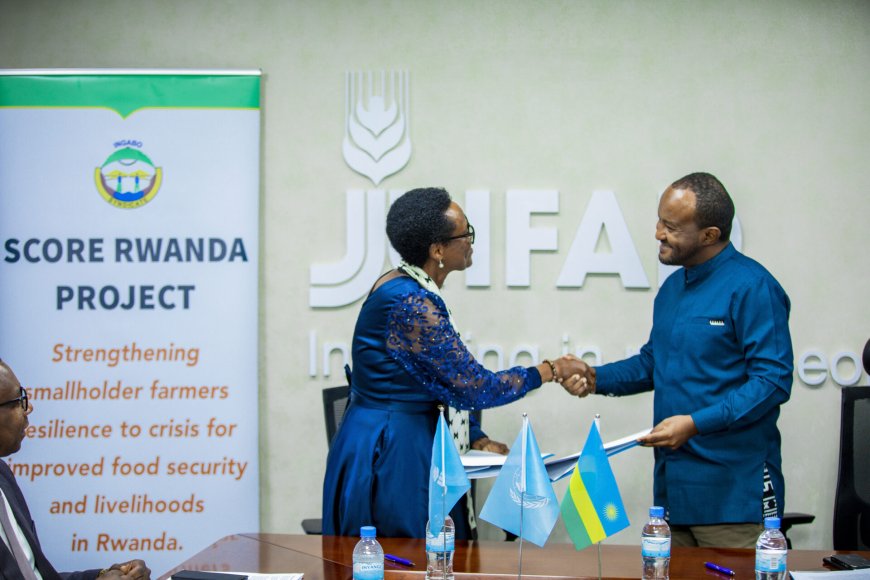IFAD Invests $2.1 Million to Enhance Cassava Farming in Rwanda
Smallholder cassava producers linked to the Ingabo Syndicate stand to gain from a generous USD 2.1 million grant from the Score Rwanda project in a significant initiative for Rwanda's agricultural landscape. This joint effort seeks to bolster farmers' resilience against the combined threats of food insecurity and climate change, thereby improving livelihoods in rural communities.

Formalization of the Financing Agreement
The financing agreement for this groundbreaking four-year project was formally signed at IFAD’s headquarters in Kigali. The IFAD Country Director and the President of Ingabo Syndicate Farmers attended the event, emphasizing a key partnership to promote agricultural empowerment and sustainability.

Project Objectives and Investment Allocation
The Score Rwanda project is deliberately structured to direct investments towards several key areas that aim to transform cassava farming:
Improving Farming Quality: The initiative aims to enhance significantly cassava production quality by adopting advanced agricultural methods and improved practices.
Water Irrigation Systems: The project will install efficient irrigation systems to mitigate drought risks and ensure steady crop production. This is essential for guaranteeing dependable water access, especially in areas susceptible to climate change.
Farmers' Capacity Building: We will implement thorough training programs to provide farmers with essential knowledge and contemporary farming techniques. This education will enable them to make informed choices and embrace sustainable practices.
Boosting Productivity: This initiative aims to enhance cassava yields and significantly increase production. Farmers can attain higher output by using innovative methods, which is vital for ensuring food security.
Addressing Post-Harvest Challenges: Strategies will be implemented to minimize losses after harvesting, ensuring farmers can fully capitalize on their hard work and maximize profitability.
Anticipated Impact on Farmers and Communities
Habte-Selassie Dagmawi, IFAD’s Country Director for East and Southern Africa, conveyed significant optimism regarding the project's potential: “The Score Rwanda project aims to raise smallholder farmers' incomes, enhance cassava production, and offer training in sustainable farming techniques. By providing farmers with tools to tackle climate-related issues such as droughts and floods, we are improving food production and bolstering the livelihoods of numerous Rwandan families.”
This initiative aims to support over 250,000 smallholder farmers, emphasizing an impressive demographic mix: around 46.3% men, 53.6% women, and 19% youth. This dedication to inclusivity highlights the project's objective of promoting a diverse and equitable agricultural environment.

Insights from the Field
Local farmers feel hopeful and expectant. Cesarie Kantarama, President of Ingabo Syndicate Farmers, shared an inspiring vision: "This project will enable us to tackle climate change effectively, boost our cassava yields, and equip us with essential tools for smart farming. While we currently yield around 14 tons per acre, we foresee significantly increasing our harvest to an impressive 50 tons per acre with this new initiative. Such a transformation has the potential to change lives."
Conclusion
The Score Rwanda project is a key investment in the sustainability and future of agriculture in Rwanda, especially in the cassava sector, which is essential for food security and economic stability. This initiative seeks to strengthen the abilities of smallholder farmers while tackling the various challenges they encounter—such as climate resilience, productivity, and market access—aiming to build a stronger agricultural framework for rural communities in Rwanda.
Collaborative initiatives pave the way for significant agricultural progress that aims to enhance the livelihoods of many while strengthening Rwanda’s dedication to food security and resilience against climate change.
 Kinyarwanda
Kinyarwanda
 English
English








































































